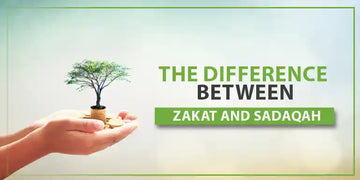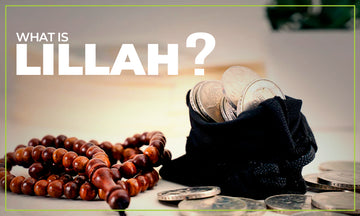ZAKAT AND SADAQAH
As long as we have more than a certain amount, known as the nisab, our faith requires us to donate at least 2.5% of our wealth. The minimum value of wealth a Muslim must have to be eligible to pay Zakat is known as the nisab threshold.
The nisab level is calculated using the values of gold and silver. The nisab is worth 87.48 grams of gold or 612.36 grams of silver.
You can use our free Zakat Calculator here if you need assistance figuring out your Zakat or are unsure whether you are above the nisab threshold.

There are seven classes of people who are qualified to acquire Zakat:
- The poor
- Administrators of Zakat
- Those whose hearts have been negotiated recently
- Those who have been enslaved
- Those in debt
- In the cause of God
- Travelers (including refugees)
ZAKAT AND SADAQAH: WHAT ARE THE DIFFERENCES?
Let us look at the main differences between Zakat and Sadaqah based on Islamic teachings.
1- Obligation
An obligation is a fundamental distinction between Sadaqah and Zakat. Zakat is a requirement. Every Muslim who satisfies the Nisab threshold is required to pay Zakat annually. Be that as it may, Sadaqah is not mandatory. No Islamic directives force Muslims to give for the sake of Sadaqah. You can decide whether or not to make a Sadaqah.
2- Specificity of assets
When it comes to paying Zakat, certain assets are taken into consideration. For instance, the entirety of your money, business resources, and other mother lodes like gems and jewelry of gold and silver are considered. The Zakat is calculated and distributed to those who qualify. Sadaqah, on the other hand, is a different matter. There are no such analyses associated with the representative of Sadaqah.
3- Dissemination channels
In an Islamic government, a zakat division gathers zakat donations from givers. This organization later spreads every one of the assortments to the people who merit it. Further, some academics assert that the government may compel the collection of Zakat. Sadaqah, on the other hand, is distinct from Zakat. It is a personal act of compassion and kindness at its heart. No administration organization can authorize the installment of Sadaqah.
4- The sinful nature of abandonment
You can not skip paying Zakat because it is compulsory. It is one of the fundamental pillars of Islam; This alone demonstrates the seriousness of Zakat. If you meet the Nisab threshold but still do not pay Zakat on your assets, it is considered risky. Be that as it may, not paying Sadaqah is not a transgression. As previously stated, it is an individual act that can be carried out against your will.
5- Thresholds
Although it may sound redundant, it is essential to reiterate this. The threshold must be considered before Zakat can be paid on personal possessions. The 85 grams of gold or 613 grams of silver are formal boundaries utilized as a type of perspective. Be that as it may, no such groups are characterized by Sadaqah.
BENEFITS OF ZAKAT AND SADAQAH
For those who give, Sadaqah and Zakat are extremely rewarding in this life and the next. For the recipient, its effects are even greater because it provides life-altering assistance to orphans, widows, and vulnerable individuals in need, such as food packages, clean water, medical care, and a perfect deal more!
We are aware that the Prophet Muhammad (PBUH) was very understanding. He (PBUH) shared his food, money, and possessions with the less fortunate, frequently allowing himself to starve. In outline, the Prophet Muhammad (PBUH) had pure nature. Thus, the fact that we are grateful for his blessings is a tremendous reward, along with his moral conduct and authentication of Allah (SWT).
InshAllah, you can improve your well-being and peace in this life and the afterlife while satisfying the needs of millions by regularly contributing to Zakat and Sadaqah.
Conclusion
Indeed, the limits of existence drive us to finish our discussion here. Despite their distinct characteristics, this two Sadaqah and Zakat of charitable giving serve the same purpose. Helping those in trouble makes the difference, something that Islam underlines emphatically. Donations should be made with this soul; Only then can one hope to receive all of the benefits offered by these donations!




